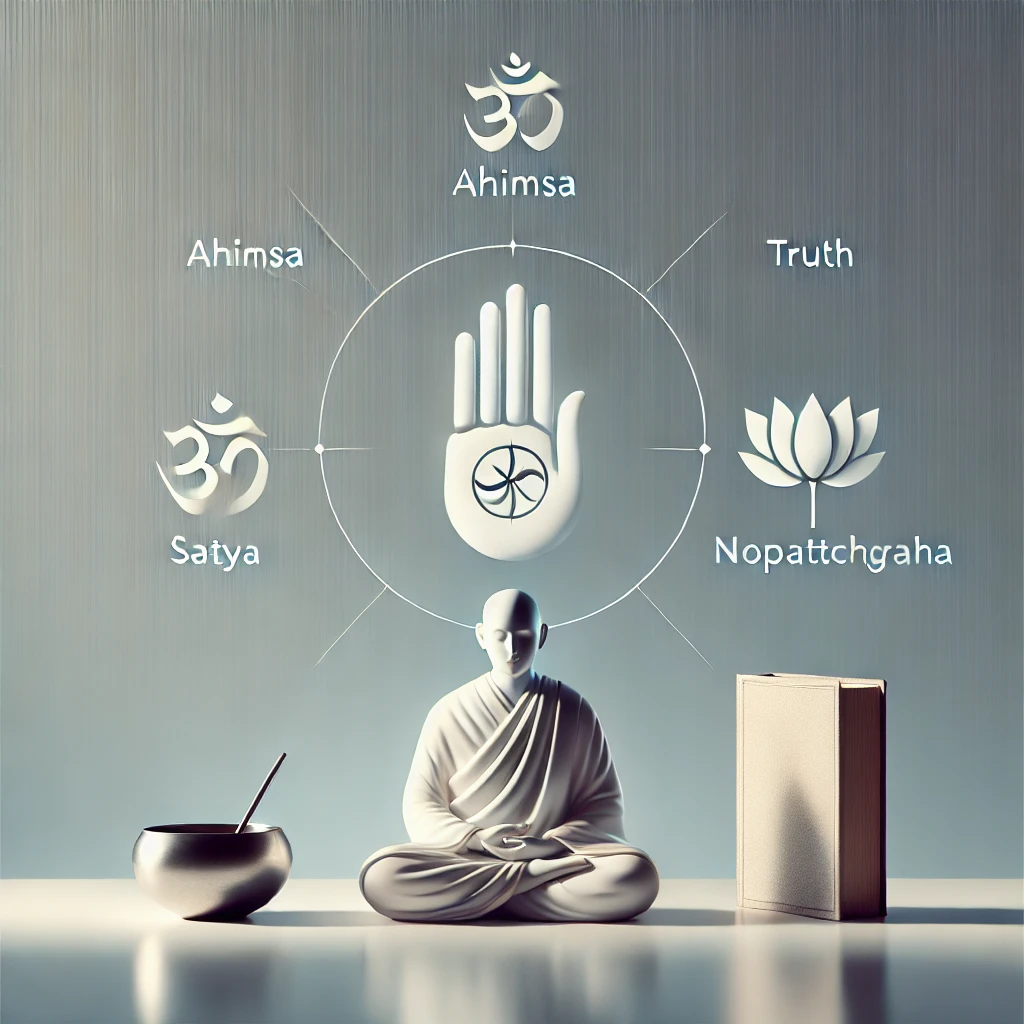Table of Contents
Introduction
Jainism three jewels are fundamental principles that guide the ethical and spiritual life of a Jain. These three jewels, also known as the Ratnatraya, are right faith, right knowledge, and right conduct. The aim of Jain life is to achieve the liberation of the soul, which is accomplished by following these three jewels of Jain ethics. The three jewels of Jainism provide a clear and structured path to spiritual enlightenment and liberation, emphasizing the importance of ethical living and true understanding.
What Are the Three Gems of Jainism?
The 3 jewels of Jainism or the Ratnatraya consist of right faith (Samyak Darshana), right knowledge (Samyak Jnana), and right conduct (Samyak Charitra). These principles are interconnected and essential for attaining spiritual liberation.
Right Faith (Samyak Darshana)
Right faith does not simply mean believing what one is told; it involves seeing, hearing, and feeling things properly, free from preconceptions and superstitions. Right faith is about perceiving the truth with clarity and determination. In Jainism, it is crucial to distinguish truth from untruth to achieve a clear vision of reality. Some texts refer to Samyak Darshana as “right perception,” emphasizing the importance of an unwavering commitment to discovering the truth.
Right Knowledge (Samyak Jnana)
Right knowledge involves having an accurate and comprehensive understanding of the universe
and its fundamental truths. This means understanding the five (or six) substances and nine truths that constitute reality in Jainism. Right knowledge must be paired with the right mental attitude; a pure soul, free from attachment and desire, is essential. The pursuit of knowledge alone is not enough; it must be accompanied by a clear conscience and a strong moral character.
Explore Jain Stories filled with tales from old times, sacred Aagam, mythology, moral stories and lessons about right and wrong. Dive into the wisdom of these stories and learn from their teachings.
Right Conduct (Samyak Charitra)
Right conduct entails living according to Jain ethical principles to avoid harm to living beings and free oneself from attachment and impure thoughts. Those who possess right faith and right knowledge are naturally motivated and able to practice right conduct. Many Jains believe that without right faith and right knowledge, achieving right conduct is impossible. It is not sufficient to follow religious practices superficially; they must be undertaken with genuine intent and understanding.
The Meaning of the Three Jewels in Jainism
What Do the Three Jewels Mean?
The three jewels of Jainism represent the core ethical and spiritual values necessary for achieving liberation (Moksha). Each jewel plays a crucial role in guiding Jains towards a life of purity and enlightenment. Right faith encourages a true perception of reality, right knowledge fosters an accurate understanding of the universe, and right conduct ensures ethical living.
What Does Jewels Mean in Jainism?
In Jainism, the term “jewels” signifies precious and invaluable principles that illuminate the path to spiritual liberation. These jewels are seen as the foundation of a righteous life, essential for overcoming ignorance and achieving a state of eternal bliss and freedom from the cycle of birth and death.
What Were the Three Ratnas?
The three Ratnas or jewels—right faith, right knowledge, and right conduct—are the guiding lights of Jain philosophy. They collectively lead a practitioner towards the ultimate goal of liberation. The integration of these three principles ensures a holistic approach to spiritual growth and moral integrity.
Conclusion
Embracing the Path to Liberation
The three jewels of Jainism are fundamental to the ethical and spiritual journey of a Jain. By embodying right faith, right knowledge, and right conduct, individuals can progress towards the ultimate goal of Moksha. These jewels emphasize a life of clarity, understanding, and ethical purity, guiding Jains towards spiritual enlightenment and liberation. Understanding and practicing these principles is essential for anyone seeking to live a life aligned with Jain values and principles.





